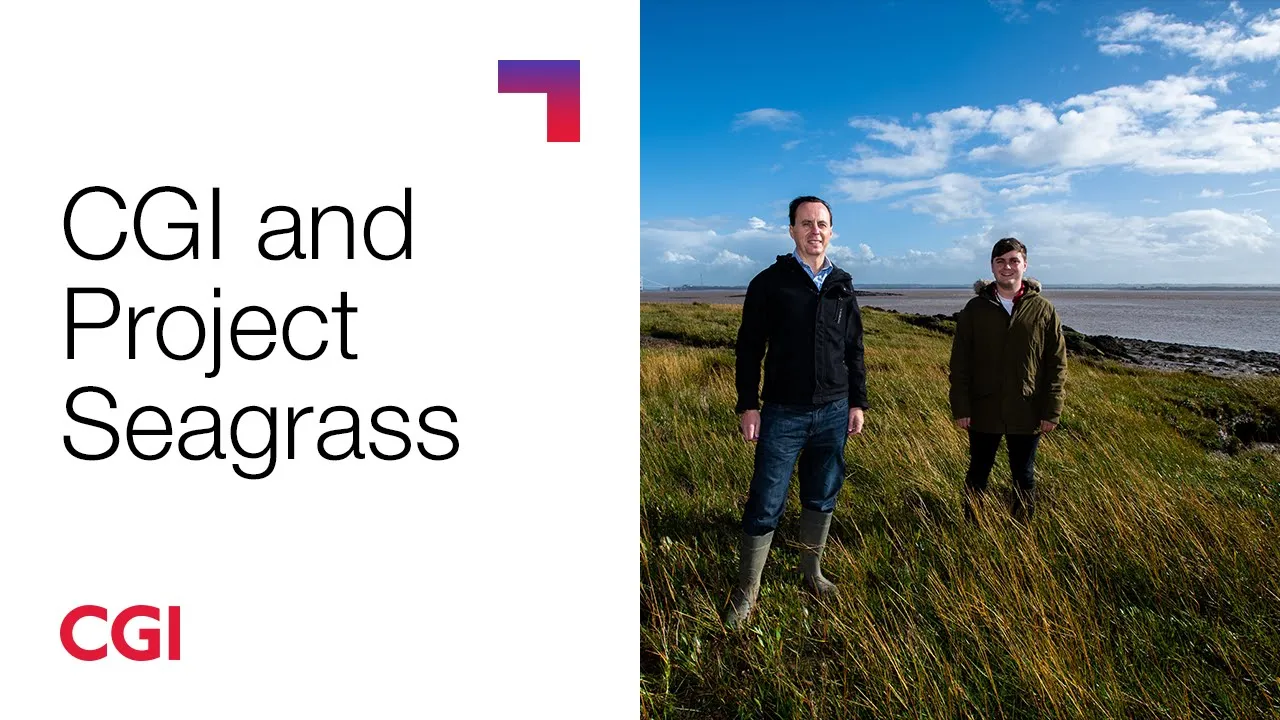CGI (NYSE: GIB) (TSX: GIB.A) announced a partnership with the marine conservation charity, Project Seagrass, as part of its No Planet B initiative and global net zero commitments.
CGI and Project Seagrass are joining forces to support the conservation of seagrass ecosystems, one of the UK’s most promising carbon sinks. Together they are committed to ensuring that the benefits seagrass meadows provide communities are sustained now and for the future.
According to research published in Frontiers in Ecology and the Environment, seagrass ecosystems globally can consume carbon up to 35 times faster than rainforests, yet they are under threat from coastal development, pollution and damage from human activity in the marine environment. Seagrass also acts as a nursery for young fish and other animals, increasing the biodiversity and food supply of our coastal waters.
Working on a pro-bono basis, CGI will deliver insights using its CGI GeoData360 Earth Observation Platform that leverages data from the European Space Agency’s Copernicus Satellite Earth Observation Mission. This earth observation data will be processed using a seagrass identification algorithm that is being developed to locate and quantify seagrass meadows across the UK. This quantified data source will then be used by Project Seagrass to aid conservation and local activities to preserve and restore this valuable carbon sink resource and to increase CO2 consumption through improving the health and volume of the UK’s coastal seagrass.
This automated seagrass mapping tool can survey the entirety of the UK in minutes, which previously could only be completed manually by boat or drone. The algorithm includes correlation with data collected by CGI volunteers and their families, including those taking part in a CGI organised STEM project, helping to improve the accuracy in the dataset. This STEM activity was used to raise awareness of how space technology can aid protection of our natural environment.
Tara McGeehan, President of CGI UK and Australia, said “Seagrass is a very important and often unknown source of CO2 consumption for the UK and should be preserved. I am excited about the opportunity space technology offers Project Seagrass to help quantify the volume and health of this resource so as to aid its protection and restoration. We at CGI are proud to be a part of this initiative.”
Richard Unsworth, Founding Director of Project Seagrass, said “By working in partnership with CGI, we’ve been able to bring new cutting-edge remote sensing technology and expertise into our seagrass restoration work. Together we’re learning more about the amazing marine life of the UK. We’ve also been fortunate to benefit from CGI’s financial assistance too and their support for STEM education. It’s a pleasure working with this professional team”.
CGI has been delivering complex, mission-critical space software systems supporting satellite navigation, communications, earth observation and operations, to space enabled applications for over 40 years.
Watch the video to find out more about our partnership:-
About CGI
Founded in 1976, CGI is among the largest independent IT and business consulting services firms in the world. With 78,000 consultants and other professionals across the globe, CGI delivers an end-to-end portfolio of capabilities, from strategic IT and business consulting to systems integration, managed IT and business process services and intellectual property solutions. CGI works with clients through a local relationship model complemented by a global delivery network that helps clients digitally transform their organizations and accelerate results. CGI Fiscal 2020 reported revenue is C$12.16 billion and CGI shares are listed on the TSX (GIB.A) and the NYSE (GIB).
About Project Seagrass
Founded in 2013, Project Seagrass is an environmental charity devoted to the conservation of seagrass ecosystems through education, research and action. Their mission is to lead societal change to enable the recognition, recovery and resilience of seagrass ecosystems globally: that provide biodiversity, equitable and sustainable livelihoods, and planetary life support.






